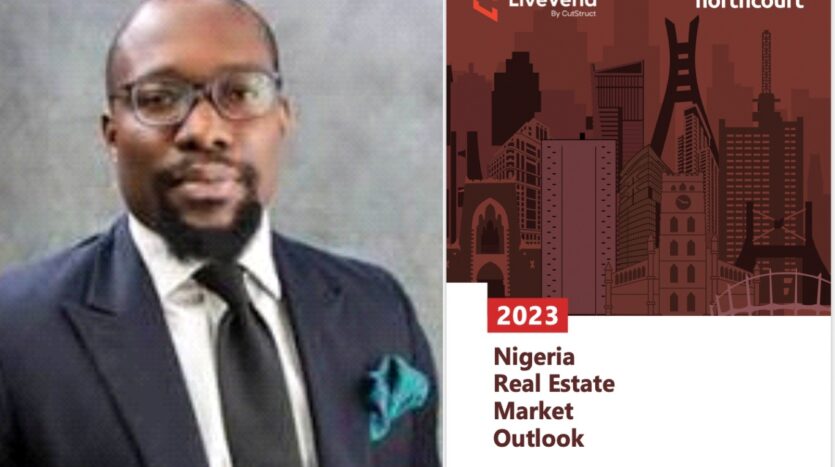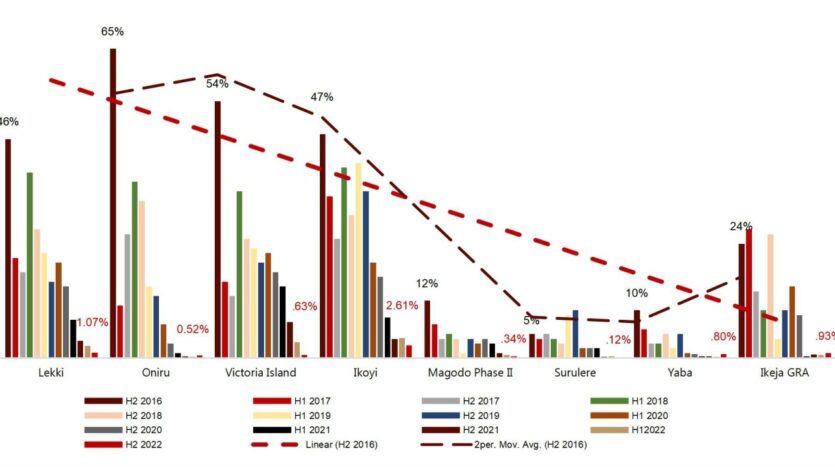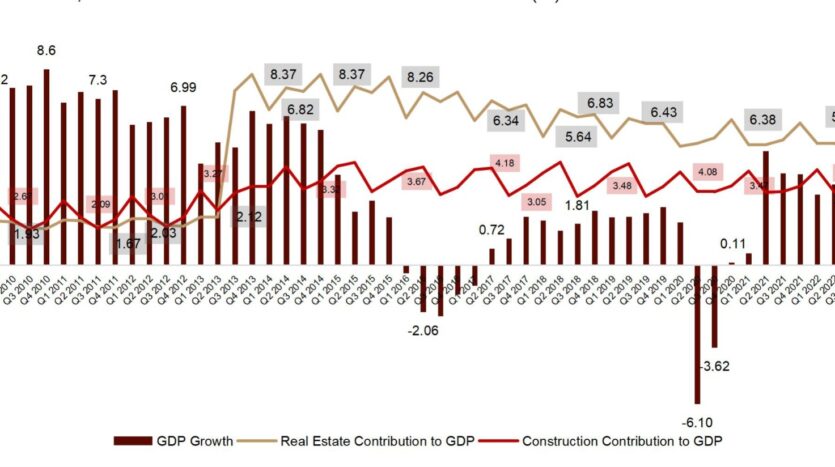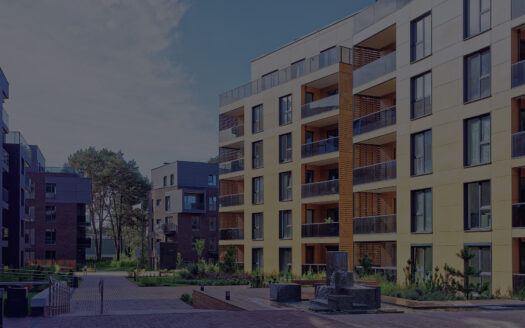The 2023 Nigerian Real Estate Market Outlook
By Northcourt
Northcourt investment solutions company has released its 2023 real estate market outlook. Ayo Ibaru, COO / Director – Real Estate Research, gives a summary of the contents…
Nigeria maintained its 3rd position in the ABSA Financial Markets Index – scoring highly on market depth, transparency and enforceability of legal agreements, a fair result considering the global challenges across many investment classes. Nigerians head to the polls in 2023 to choose a new government in 1 of 5 elections to watch, according to the Council on Foreign Relations, a New York-based Think Tank (the others being Turkey, Paki s tan, Argentina and Bangladesh).
The leading contenders for the Office of The President find themselves on opposing sides, whereas they were once bedfellows in the not-too-distant past. And as is the staple of the season, debates have raged around who should win, and in characteristic Nigerian parlance, who ‘must lose’. Some suggest that the winner may likely come through a runoff election – which would be a first for Nigeria. Nigeria’s economy has never been in straits this dire. The Naira declined precipitously and the Central bank sought to stabilise its value by redesigning the currency.
Out and about
Residential Vacancy Rates in Lagos state, select nodes (in %, 2016 to H2 2022.)
Crude oil prices, while still relatively high, were not of many benefits due to accountability issues. Unsurprisingly, inflation has continued to accelerate, with food inflation leading the charge. The floods that culminated in November further contributed to this. The government has maintained heavy borrowing to fund infrastructure projects, duly announced with execution timelines uncertain. Demand for real estate assets is strong. Residential vacancy rates in the urban centres of Lagos, Abuja and Port Harcourt are at an all-time low – and progressively so. Vacancy rates are now 0.12% in Surulere, 0.93% in Ikeja GRA and 0.52% in Oniru, Lagos; 2.62% in Wuse 2, 0.93% in Utako and 4.22% in Gwarimpa, Abuja; 5% in Elenlewo, 3% in Woji and 9% in Stadium Road, Port Harcourt. New areas are opening up as developers continue to capitalise on local demand. Leading developers report that effective demand for their projects is 55 – 65% diaspora driven.
There’s also a flight to quality residential assets as the number of developers has increased, even though construction standards could be better in quite a few of their builds. Competent developers have seen their waiting lists grow – albeit slightly. This flight to quality is also the case in the Office market as leading local and global brands explored options to reduce dollar rent exposure typical with Grade A office leases, choosing rather to sign multi-year leases with serviced/flex office providers.
Land, once again, maintains its position atop the chart of stable real estate investments. In some instances, returns have risen by double-digit percentage points. But it has also had some help from industrial developments – take, for example, the Lekki Deep Seaport commissioned in Q4 2022 and projected to attract manufacturers and 3PL operators from the Tin Can Island/Apapa axis. This has driven up demand for land in the surrounding areas. The retail real estate market, not one to be behind in adjusting to economic curve balls, has continued with the trend of developing locations circa 3,000 sqm. Slightly more ambitious players have conceptualised their assets to either continue with the mixed-use development train or attempt the riskier catchment area approach where assets have a retailer mix that targets aspirational consumers within a circa 2km radius.
More funding rounds have been completed by both traditional and tech-driven real estate firms. Leading South African retailer, Game Store exited Nigeria, closing all its branches in December. The retailer also plans to exit Ghana, Kenya, Tanzania and Uganda. Retail Supermarket Nigeria Limited (RSN), owners of Shoprite Nigeria, reopened its store at Circle Mall in Jakande, Lekki – Lagos, 24 months after the 2020 post #EndSARS vandalisation and launched a new store in the recently completed 11,720sqm Garden City Mall, Port Harcourt.
Despite the real estate sector contributing 5.34% to GDP growth in Q1 2022, housing supply remains inadequate considering Nigeria’s estimated 219m population. The ₦470bn national budget allocation for housing in 2022 would be a silent wind in the face of the Federal Government’s stated N21trn required to tackle the 28m housing deficit. Nigeria increased its investment in pan-African housing development financier Shelter Afrique, growing from 13.27% to 15.8%. Kenya remains the largest shareholder, holding 16.85%. Landmark Africa and Mixta Africa received funding from Shelter Afrique – N10bn and N8bn, respectively for mixed-use and affordable housing projects.
The Securities and Exchange Commission released new regulations on the issuance, offering and custody of digital assets in Nigeria. The proposed rules apply to all issuers seeking to raise capital in Nigeria through digital asset offerings, digital asset offering platforms, digital asset custodians and FinTech Companies. The Nigeria Startup Bill was passed into law and is expected to remove the legal ambiguities that have slowed the startup industry.
Going into the 2023 elections, there appears to be the unfolding of a tale of two halves. In the pre-election phase (i.e. before February), developers, investors and occupiers will likely adopt a wait-and-see approach. This will lead to pent-up demand post-election. From an investment perspective, capital will likely need expression as a result. Residential developments with strong infrastructure will see demand – more from the diaspora than from local investors (especially sale transactions).
Retail real estate will continue to expand as local developers capitalise on mid-income markets and emphasise smaller-sized projects but broad tenant mixes. With the further establishment of e-commerce and foreign investor interest, industrial real estate growth has remained consistent. There is still a demand for inner city last-mile warehousing, as this report observed a few editions ago, and the ratio of the total population to market size remains a strong predictor of the need for more industrial real estate.
The demand for industrial real estate, last-mile logistics and warehousing is expected to grow in urban areas and in second-tier cities. The market for small to mid-sized Healthcare real estate is seeing more supply. Demand remains. Outside gated communities, residential sales slowed down locally as diaspora investment for sales remains the mainstay even though rental markets have remained robust. The growth in new towns and senior living centres supported by strong infrastructure currently provided by private developers has continued. Certain nodes in Lagos, Abuja and PH have shown signs of aging infrastructure, such as Yaba and Surulere.
This report looks at the quietly but aggressively growing market for data centres. It also attempts to discuss the critical role of infrastructure planning – seeing that floods wreaked havoc in over 33 states; assess the investment in industrial real estate (noting Pinnacle oil’s $1bn petroleum terminal and the $1.5bn Lekki Deep Sea Port); review fundraises by PropTech startups and conclude with a peek into the watershed year that is 2023








